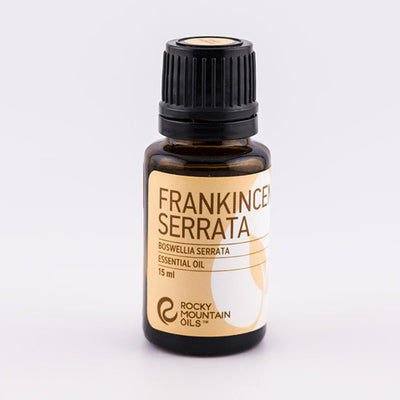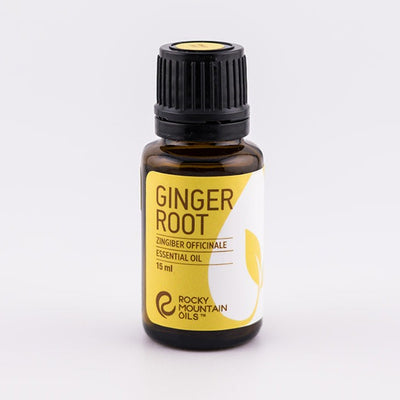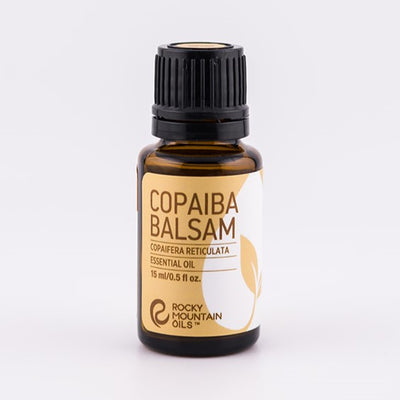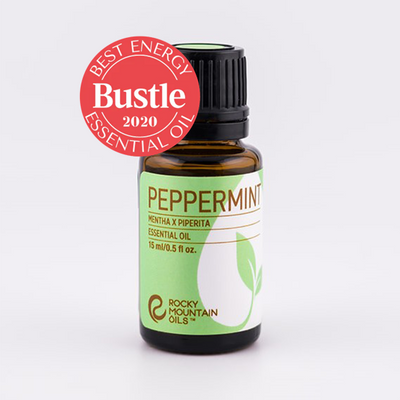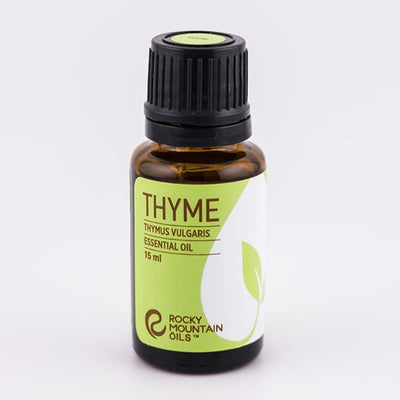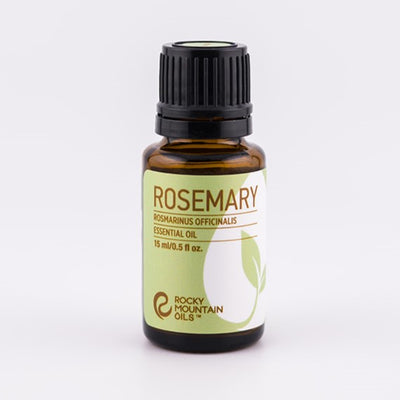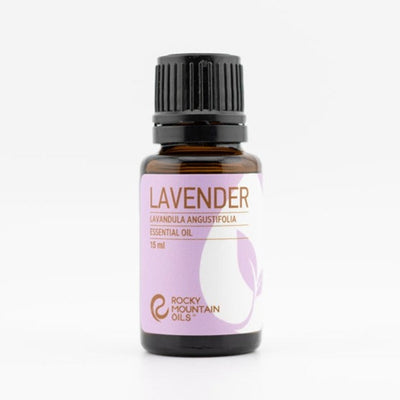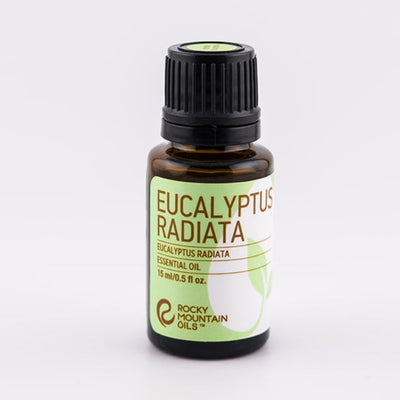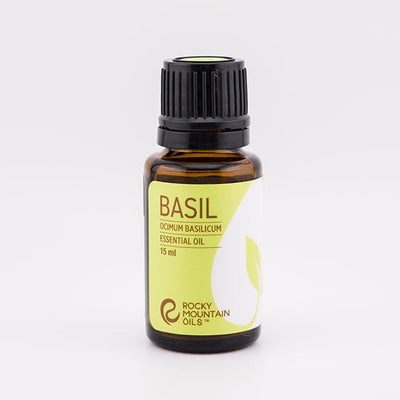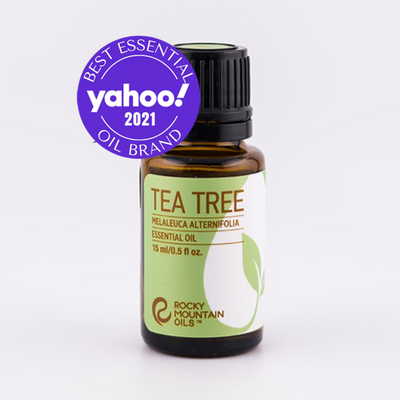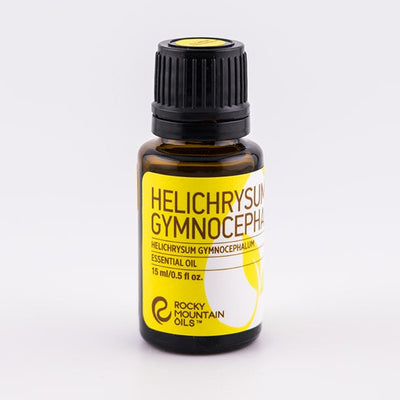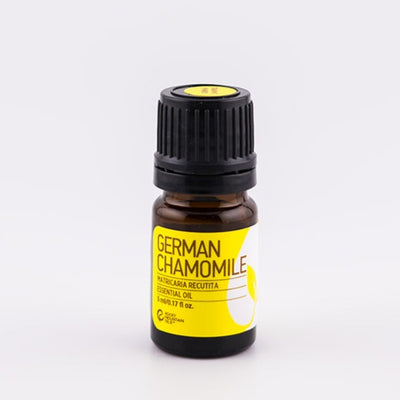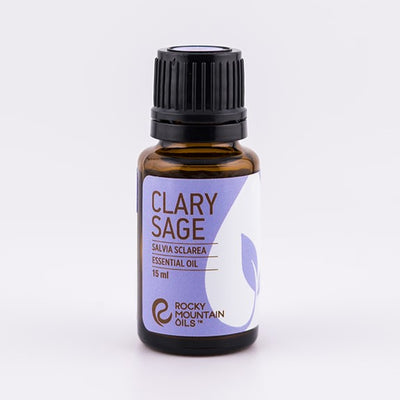Top 15 Essential Oils For Inflammation
If you experience painful side effects of inflammation, you can use essential oils to help ease the symptoms.
To help make things a little easier for you, we picked out our top 15 favorite essential oils to help ease the inflammation you may experience throughout your life.
We've all been there — a sore muscle or two after a particularly intense workout, a sprained ankle on a hike or at a sports game, or stiffened joints from an aging body. We may not have all experienced these aches and pains in the same way, but odds are you've had some unfriendly encounter with acute or chronic inflammation in your life. Perhaps it dissipated after only a few days or lingered over weeks, months, or years. No matter the type of inflammation you experience, essential oils for inflammation can help provide some natural relief.
What Is Inflammation?
Inflammation is a natural way your immune system responds to protect your body from illness or infection. When you get injured, your body responds by increasing the blood flow to the affected area. This helps deliver more white blood cells to fight off infection and help rebuild any damaged tissue. While this increased blood flow is beneficial, it can result in some unpleasant side effects, including redness, heat, swelling, and sometimes pain. In some cases, the effects of inflammation can even result in limited mobility of the affected area and other symptoms.
There are two main types of inflammation we can experience: acute inflammation and chronic inflammation. Acute inflammation occurs rapidly, typically after an illness arises or injury occurs. You can often pinpoint exactly where the affected area is with acute inflammation, and the inflammation subsides after a few days. On the other hand, chronic inflammation takes longer to subside; it can take months, years, or even an entire lifetime for some people. Chronic inflammation can arise from acute inflammation, but it is most often a result of an autoimmune disorder.
Essential Oils To Help Ease Inflammation
While there are many ways to help reduce the symptoms and effects of acute and chronic inflammation, such as medication and diet, essential oils offer an additional and natural way to find relief. There are many essential oils out there that have anti-inflammatory properties. Still, to help make things a little easier for you, we picked out our top 15 favorite essential oils to help ease the inflammation you may experience throughout your life.

Inflammation in the joints, more commonly known as arthritis, results in stiffness of the joints, which often leads to pain and limited joint function. As a result, many people can find it difficult to perform simple tasks throughout the day. To help ease the discomfort and stiffness you may feel in your joints, try using these essential oils:
Frankincense
Frankincense essential oil has long been used as a natural pain reliever. Today, many researchers have found that those benefits still continue today. One study found that Frankincense acts as an immunostimulant to help boost the body's natural immune response. This can help your body go through the inflammation and healing process faster, thus reducing recovery time and pain. In addition, the Arthritis Foundation states that the acids within Frankincense essential oil have anti-inflammatory and analgesic (pain-relieving) properties. It can specifically help prevent cartilage damage for those with rheumatoid arthritis.
Turmeric
Although well-known as a spice in the kitchen, Turmeric offers some incredible anti-inflammatory benefits with its essential oil. Over the years, many studies have shown that Turmeric's active ingredient, curcumin, exhibits powerful antioxidant and anti-inflammatory properties. As a result, Turmeric can help reduce oxidative stress, the inflammation associated with it, and other conditions. Curcumin has also specifically been shown to have anti-arthritic effects, easing the inflammation of those who experience joint pain.
Ginger
When it comes to using Ginger essential oil to reduce the discomfort associated with joint pain, there are limited studies that involve only mice. While further studies are needed to test its effects specifically on humans, the studies completed so far are promising. One such study showed that Ginger essential oil significantly reduced joint inflammation. Another study with humans also showed that patients with osteoarthritis experienced less knee pain when they used Ginger essential oil.
Copaiba
While perhaps not as well known, this woodsy and sweet-smelling oil offers some surprising benefits in easing joint stiffness and discomfort. One study showed that Copaiba essential oil can help ease pain and increase finger strength in those who have arthritis in their hands. In addition to aiding joint stiffness, Copaiba oil can help inhibit nitric oxide production, a signaling molecule that contributes to inflammation. By reducing nitric oxide production, Copaiba can help reduce the amount of overall inflammation you experience.
Looking for more options to relieve your joint stiffness? Here are some additional essential oils that may help:

Whether you overwork a muscle at the gym, strain your back while lifting something, or experience the daily aches and pains of growing older, muscle inflammation and pain can get in the way of daily living. If you have sore or inflamed muscles, try these essential oils to find relief:
Peppermint
This minty essential oil is famous for its cooling and analgesic effects. If you experience acute inflammation due to an injury or overworked muscle, Peppermint can help. Peppermint essential oil contains menthol and menthone, which offer anti-inflammatory properties. In one study, menthol and menthone both reduced the number of leukocytes, which are white blood cells that go to a site of injury and can contribute to inflammation. By cooling the affected area and thus reducing the blood flow and amount of leukocytes in the affected area, Peppermint essential oil can help ease the effects of inflammation.
Sweet Marjoram
Sweet Marjoram's secret weapon is a series of antioxidant compounds called carvacrol. Oxidation can lead to inflammation, but with the help of antioxidants, like those found in Sweet Marjoram, your body can respond better, fight oxidation, and reduce inflammation.
Thyme
This earthy herbal oil is definitely a must-have for easing the effects of inflammation. Thyme essential oil has natural anti-inflammatory properties, but it works specifically by reducing the amount of the COX-2 enzyme in your body. When certain conditions arise, such as when you receive an injury, the COX-2 enzyme produces a group of lipids called prostaglandins. These prostaglandins appear where there is tissue damage and promote inflammation, fever, and pain as part of the normal healing process. By reducing the amount of COX-2, Thyme essential oil can help ease the painful effects of inflammation.
Rosemary
Rather than helping reduce the enzymes or compounds that contribute to inflammation, Rosemary essential oil works by speeding up your body's natural healing process. How you ask? Rosemary essential oil has been shown to increase your blood flow. This can help get the necessary white blood cells to an injured area faster and reduce your recovery time, all while easing the inflammation and discomfort you experience.
Lavender
Best known for its relaxation properties, Lavender essential oil also offers excellent anti-inflammatory benefits. Studies have found that Lavender can help ease the pain and swelling you may experience due to inflammation. In fact, one specific study found that participants had reduced knee pain after just one week of applying Lavender oil topically.
Want to try some other oils for your acute or chronic muscle inflammation? Try these!
- Frankincense
- Turmeric
- Basil
- Ginger
- Tea Tree
- Helichrysum gymnocephalum
- Relieve Me
- True Blue Roll-On
- Sports Pro

When you get an infection in the respiratory tract, your body can call leukocytes (cells that fight off foreign substances) to that area. As a result, you may experience some inflammation as your body tries to fight off the infection and restore your health. If you experience painful side effects from respiratory inflammation, these essential oils may be able to help:
Eucalyptus
Eucalyptus essential oil is well-known for its ability to help open up the airways and promote better breathing. But did you know that it can partially do this by easing the effects of inflammation? Eucalyptus possesses natural analgesic and anti-inflammatory properties. Using aromatherapy can help reduce respiratory infections and inflammation symptoms while working with your body to help fight infection and support the healing process.
Basil
While you may enjoy this herb in the kitchen, you will want to keep this essential oil around for any respiratory inflammation. Basil essential oil contains the compound 1,8-cineole, which has anti-inflammatory properties. 1,8-cineole is well known for its mucolytic and spasmolytic properties, which means it can help break up mucus and ease muscle spasms. As a result, this compound and Basil essential oil can help control the inflammatory process and keep your airway clear. Basil also contains linalool, which has been shown to reduce swelling.
Tea Tree
Like Eucalyptus, Tea Tree essential oil is renowned for its respiratory benefits, among other things. Today, we have studies to show that Tea Tree also has natural anti-inflammatory and immune-boosting properties. Specifically, Tea Tree essential oil can help ease inflammation and symptoms in a variety of respiratory infections, such as bronchitis and a stubborn cough.
Want to boost your body's ability to fight off respiratory infection? Try using some of these additional oils:

Our skin comes in contact with many harmful toxins, and sometimes it can become irritated and inflamed. When you experience sore, inflamed, or red skin, try using these essential oils to ease your acute or chronic inflammation discomfort:
Helichrysum gymnocephalum
While this sweet yet earthy floral oil offers a wide range of benefits, it has excellent anti-inflammatory properties. Helichrysum can help reduce the effects of inflammation and support proper blood vessel function. As a result, you can experience reduced swelling, redness, and discomfort. Helichrysum essential oil also has strong antioxidant properties to fight oxidation as a possible cause of inflammation. It also fights the signs of aging and revives your skin's natural glow.
German Chamomile
German Chamomile has powerful anti-inflammatory properties, and it has long been used to treat inflammation, particularly that of the skin. It can penetrate deep into the dermis layers to improve skin conditions when applied topically. In fact, one study shows that Chamomile can help ease a variety of skin irritations that cause inflammation, including sunburns, rashes, and eczema.
Clary Sage
Often used to help with menstrual cramping, Clary Sage can also help with bouts of skin inflammation. Clary Sage essential oil contains a compound called linalyl acetate, which has been shown to reduce skin inflammation and support the body's natural healing process. Not only that, but Clary Sage can also help restore and balance the natural oils in your skin, ultimately helping to keep your skin youthful, healthy, and beautiful.
Inflammation is a normal and healthy process that your body uses to fight off infections and heal itself from injury. However, if you experience painful side effects of inflammation, you can use essential oils to help ease the symptoms. This can support your body's natural healing process. Remember to always use a carrier oil when applying essential oils topically to help "carry" them into the skin and decrease the likelihood of sensitivity.


